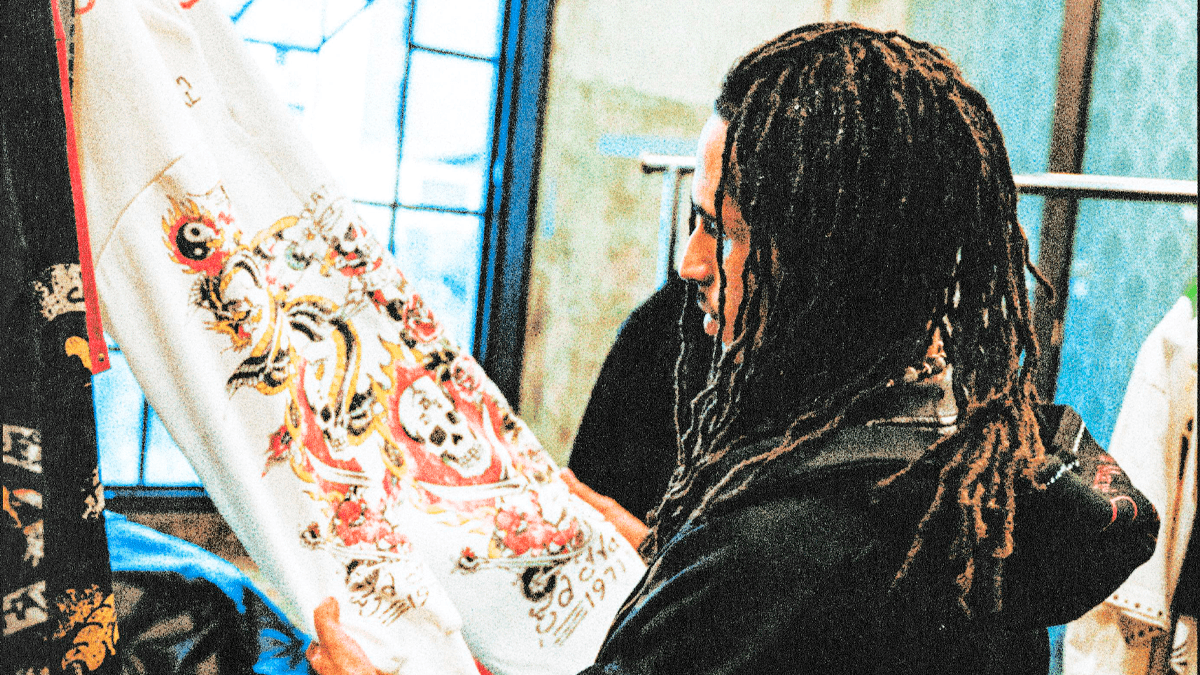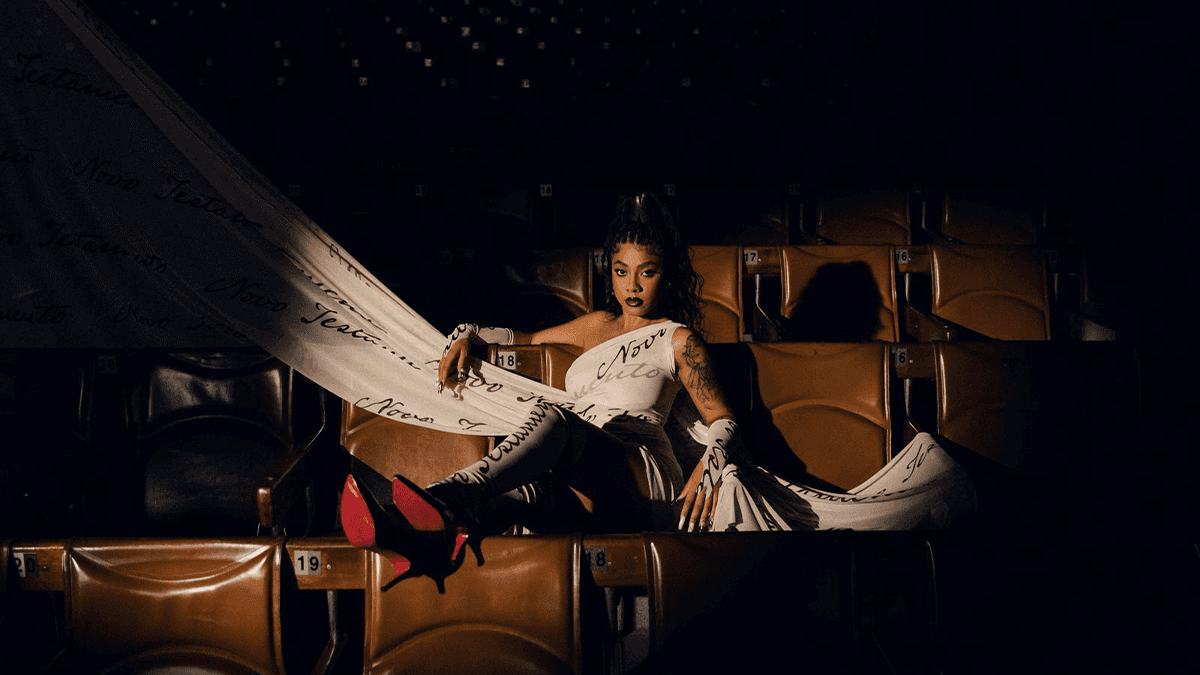Love Black people as you love Black culture
It is very likely that most of the artists (music, cinema, visual arts, fashion) that you like/follow are made by black people – Kendrick, Mano Brown, Lupita Nyong'o, Travis, Virgil, Denzel, Basquiat, Michael B. Jordan, Djonga, Cardi B… yes, there are many black people entertaining you that we know very well.
But have you ever stopped to think about this?
For the mentioned artists (and those not mentioned as well) being black is an 'essential' part of their work. Race directly interferes in the art of these people, both in the creative side, as in the creation of song lyrics, acting in films and series, paintings and sculptures, clothing pieces, etc., as well as in the treatment they received in their journeys, what they heard along this path, and the different postures they had to adopt in various moments of these life stories.
Or do you think it is easy to be black and compete for an Oscar? And to be at the top of the Billboard? And to walk the corridors of Hollywood?

Mahershala Ali won an Oscar in 2017 for 'Moonlight'
Photo: Kevork Djansezian/Getty Images
Of course, there is always the option to ignore all of this and listen to Gunna just like you listen to Lil Xan.
But for us, the fun is in precisely knowing what drives the artists we like, understanding what led them to create this and that, comprehending the pains and pleasures through which their arts were made. That's why, sit down because here comes a story.
“Visions of Martin Luther staring at me
Malcolm X put a curse on my future (…)
I am a victim of revolutionary music ...”
Kendrick Lamar - HiiiPoWeR
First, it is necessary to understand that art is a powerful channel for denouncing the violence and exclusion that the black population suffers. Secondly, the presence of black professionals in the spotlight or ‘behind the cameras’ is extremely important in the struggle not only against racism but in favor of the inclusion of these people in the most diverse areas. Representativity is essential in these spaces so that stereotypes created by white people stop being reinforced and that black people produce their own narratives.
“You must be thinking what you have to do with this…”
Negro Drama – Racionais
Well, consuming just for the sake of consuming and not “seeing” the color of these artists is to decontextualize their arts and their presence in the cultural industry (and in the world as a whole) which is... racist. So, before anything else, it is necessary to adopt a more conscious stance when accessing the work of these people, paying attention to the details, what story is being told through that art, and all the struggles that exist behind it.
What can help you understand and absorb black art better is to study, take courses, read books, watch documentaries and films not only starring black people but also conceived, produced, and directed by them. All of this will help you understand the struggle against racism, when these pains were created, by whom they were created, and why they still make black skin burn. Additionally, it will help you finally normalize the presence of black people in your life, in the most diverse situations, moods, and moments.
Simply saying “I love artist X” as a way to show you are not racist puts the black person in a position of servitude (once again…), as something that will always serve you whenever you need something – in this case, entertainment.
Learning about the theme and giving your money/time is extremely important so that these people can have their roles recognized and become increasingly visible. These are examples of actions you can take to have a more active stance in the fight against racial inequality, beyond that post with a black image.
| See the world through the eyes of a black woman | 5 books that can help you
Now returning our attention to hip-hop and streetwear, we can confidently say that they are, by nature, completely linked to the black people - especially, those from the periphery. As we have already mentioned, you can ignore all of this, listen to your rap, and buy your branded t-shirt without realizing this, but you cannot ignore the fact that these are cultural forms of strong political bias, characterized as pathways of debate and resistance of black people.
Streetwear, for instance, was responsible for reinterpreting fashion for an audience that previously either did not care for it or did not even dream of it because they had no access. This same fashion that later sought inspiration from that jacket (which you pay a fortune for) in the ghettos or even from black people who ascended and reached success in some way, translating this victory, for instance, into an incredible line of shoes (save Air Jordan).
https://www.instagram.com/p/CBBlXd_nWJU
And to understand the relationship between streetwear, hip hop, and the anti-racist struggle, it is necessary, besides going back to the origins of these movements and seeing the color of the people who are behind all this and/or serve as inspiration in the creation and development of these arts, to turn your gaze more towards culture and less on consumption in which this universe has ultimately been reduced.
| Indebted, but with two thousand reais sneakers on
It is important, when consuming these things, to go beyond and see not only what distracts you, but also the entire foundation that was necessary for that manifestation of black art to reach you. And more: emancipate the way you treat and speak about this art. Fight, in the depths of your wardrobe and in the intimacy of your Spotify, against the disconnection of the socio-political issues that black art carries - rethink your relationship with this culture, to be anti-racist it cannot just be visual.
“You tell me my music is more than a song, it is certainly a blessing
But a prophet is not a prophet until they ask this question:
When the shit hits the fan, are you still a fan?”
Kendrick Lamar – Mortal Man
And again, we emphasize that you have every right to stay in your white privilege of embracing the movements/art of black people only as entertainment and instruments for building your visual identity.

Ah, this image...
But we, from NOTTHESAMO, find it very problematic to keep the culture produced and inspired by blacks only as a 'distraction'; for us black art is a vital tool for resistance and preservation of hope in moments like the one we are experiencing - especially in Brazil, a predominantly black country, but which still looks so much towards European and American culture and aesthetics. A colonized population that has little or no interest in its own history…
https://www.instagram.com/p/CBJXUoQH47c
That’s why we understand if you choose to continue in that common place, but we suggest that you be an active figure in the anti-racist struggle. Contribute to the re-signification of the image of black people, help to change the imaginary of white people about black people in the spaces you frequent.
How?
We gave here the example of studying/reading black authors and consuming black art with more awareness, but you can also share these discoveries with your friends, hire black people (if you are in a position that allows it), insert more black people into your daily life, such as friendships and professional contacts, correct someone when they make a racist joke/comment, and the most important: invest directly in the black community by buying from relevant brands and designers.
Because while you watch Black Panther just for fun, there is a black artist who cannot pay their rent at the end of the month. While you listen to Travis Scott without even remembering his skin color, there is a black child who will not be able to achieve their dream of becoming a great painter because the police killed them first.
We need you to rethink your imagination and reconsider how you consume black art so that we don’t have to revisit this conversation in the future.
See others like this





